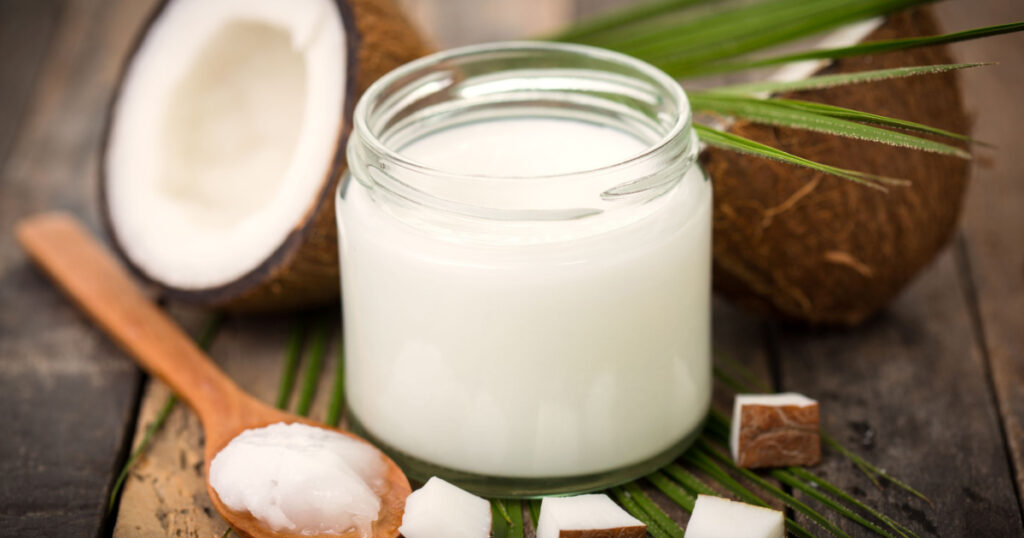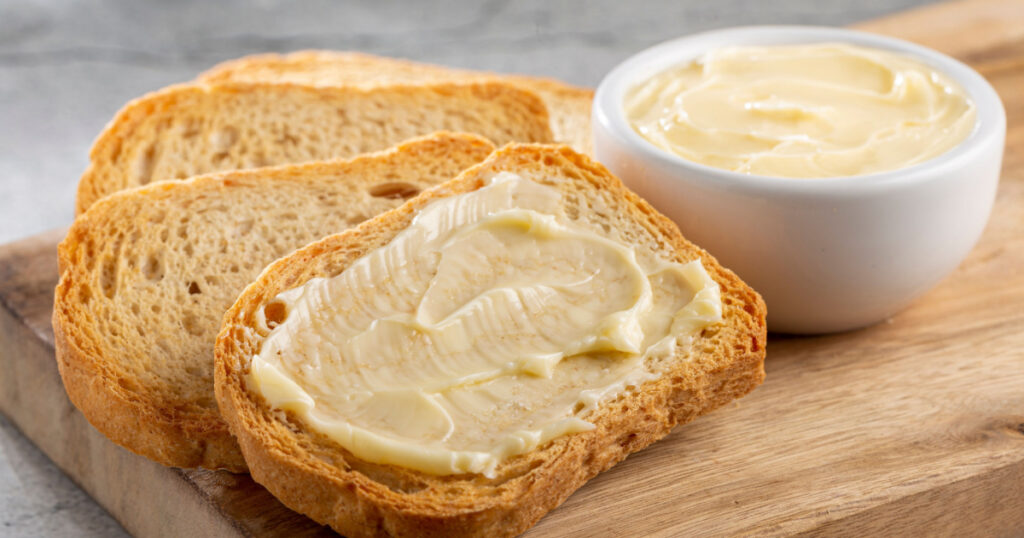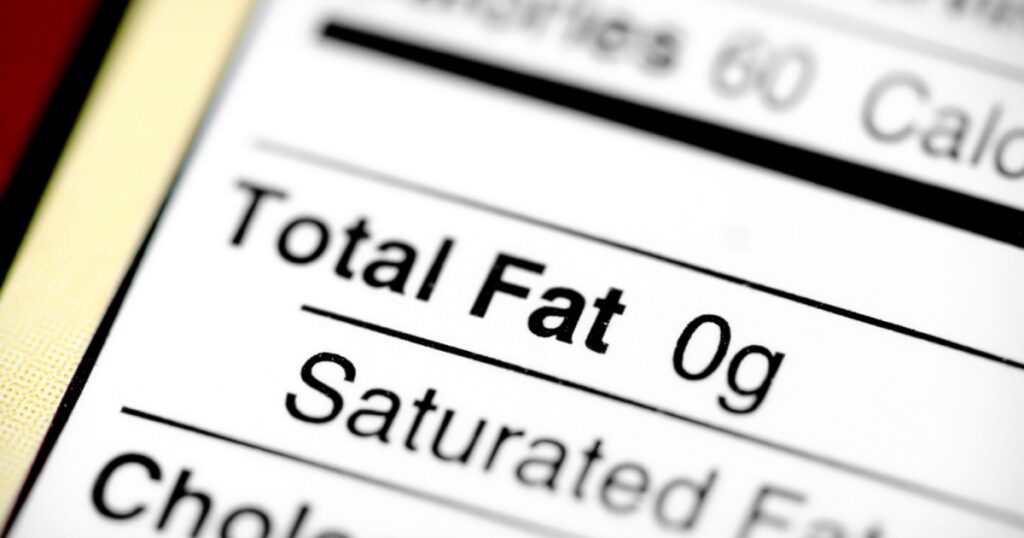When it comes to losing weight, there are numerous fad diets and trendy ingredients that claim to be the secret to shedding pounds. Among these, coconut oil and butter have gained attention as potential aids in weight loss, following along with what is known as the Keto diet. As we know, however, nutrition trends that seem too good to be true often are, and it is crucial to separate the facts from the hype. This is the truth about butter, coconut oil, and their impact on health and weight loss.
The Hype Surrounding Coconut Oil and MCT Oil

Coconut oil and its derivative, Medium Chain Triglyceride (MCT) oil, have been touted as weight loss aids. Proponents claim that the presence of medium-chain fatty acids in these oils can boost metabolism and promote fat burning. While there is some evidence supporting these claims, it is essential to approach them with caution. (1)
Coconut oil is a saturated fat that contains about 50% medium-chain triglycerides (MCTs). MCTs are absorbed directly into the bloodstream and transported to the liver, where they are used as an immediate source of energy. This process does not require bile or pancreatic enzymes for digestion, which makes MCTs an excellent choice for people with digestive disorders such as Crohn’s disease or celiac disease. However, the body can only use so much energy at once. If you consume more MCTs than your body needs for immediate use, they will still be stored as fat, just like anything else. (2)
The Nuance of MCT Oil

While the overall hype surrounding coconut oil might be exaggerated, there is some nuance when it comes to MCT oil. Medium-chain triglycerides, found in MCT oil, are metabolized differently than long-chain fatty acids commonly found in other fats. Some studies suggest that MCT oil may increase feelings of fullness and slightly boost metabolism. However, the effect is subtle, and it should be noted that weight loss ultimately comes down to overall calorie intake and what was already mentioned above.
The Reality of Butter

Butter, once vilified due to its high saturated fat content, has recently gained popularity, particularly in the context of the “bulletproof coffee” trend. This coffee preparation method involves blending butter with coffee as a way to increase energy and promote weight loss. However, just like coconut oil, butter is high in calories and saturated fat, which should be limited in a healthy diet. (3)
Butter is also high in saturated fat, which in excess can affect your blood cholesterol levels and increase your risk of heart disease. This means that putting butter in your morning coffee is likely not ideal for the majority of people. (4)
Calories and Weight Loss

Regardless of the specific food or ingredient, the key principle of weight loss remains the same – calories matter. To shed pounds, it is necessary to create a calorie deficit, where you burn more calories than you consume. Both butter and coconut oil are calorically dense, meaning they contain a high number of calories per gram. Therefore, consuming them in excessive amounts may hinder weight loss efforts.
For these reasons, the best method for losing or maintaining your weight doesn’t lie in trends and fad diets. Rather, it remains in eating a healthy diet with plenty of fruits and vegetables, limiting sugar, processed foods, and alcohol, drinking water, sleeping well, and exercising regularly. No matter what people try to sell you on for weight loss, these principles stay the same. It doesn’t have to be complicated or expensive. Anything that does help you lose weight quickly is likely not good for your body and not sustainable.
Finding What Works for You

In the end, the effectiveness of any weight loss strategy depends on individual factors. Some people may find success in incorporating moderate amounts of butter or coconut oil into their diet, while others may prefer to limit their intake. It is crucial to recognize that weight loss is highly personal, and what works for one person may not work for another. Remember: There is no miracle weight loss food. Rather, weight loss comes from consistent improvements to your overall lifestyle.
The Bottom Line

In conclusion, the hype surrounding coconut oil and butter as weight loss aids may be exaggerated. While there are some potential benefits to be gained from moderate consumption of MCT oil, it is essential to remember that weight loss primarily depends on creating a calorie deficit. Both butter and coconut oil are high in calories and saturated fat, which should be consumed in moderation. Ultimately, the key to successful weight loss lies in finding a balanced, nutritious diet that suits your individual needs and preferences.
Read More: Can Coconut Oil Help With Dementia?
Sources
- “Medium-Chain Triglycerides.” Examine. Kamal Patel, MPH,MBA. September 28, 2022.
- “A coconut oil-rich meal does not enhance thermogenesis compared to corn oil in a randomized trial in obese adolescents.” NCBI. Janna LaBarrie and Marie-Pierre St-Onge. April 17, 2017.
- “What Is Bulletproof Coffee, and Is It Healthy?” Eating Well. Christine Byrne, M.P.H., RD. October 21, 2023.
- “Revision 2000: A Statement for Healthcare Professionals From the Nutrition Committee of the American Heart Association.” AHA Journals. Ronald M. Krauss, Robert H. Eckel, Barbara Howard, Lawrence J. Appel, Stephen R. Daniels, Richard J. Deckelbaum, John W. ErdmanJr, Penny Kris-Etherton, Ira J. Goldberg, Theodore A. Kotchen, Alice H. Lichtenstein, William E. Mitch, Rebecca Mullis, Killian Robinson, Judith Wylie-Rosett, Sachiko St. Jeor, John Suttie, Diane L. Tribble and Terry L. Bazzarre. October 31, 2000.

